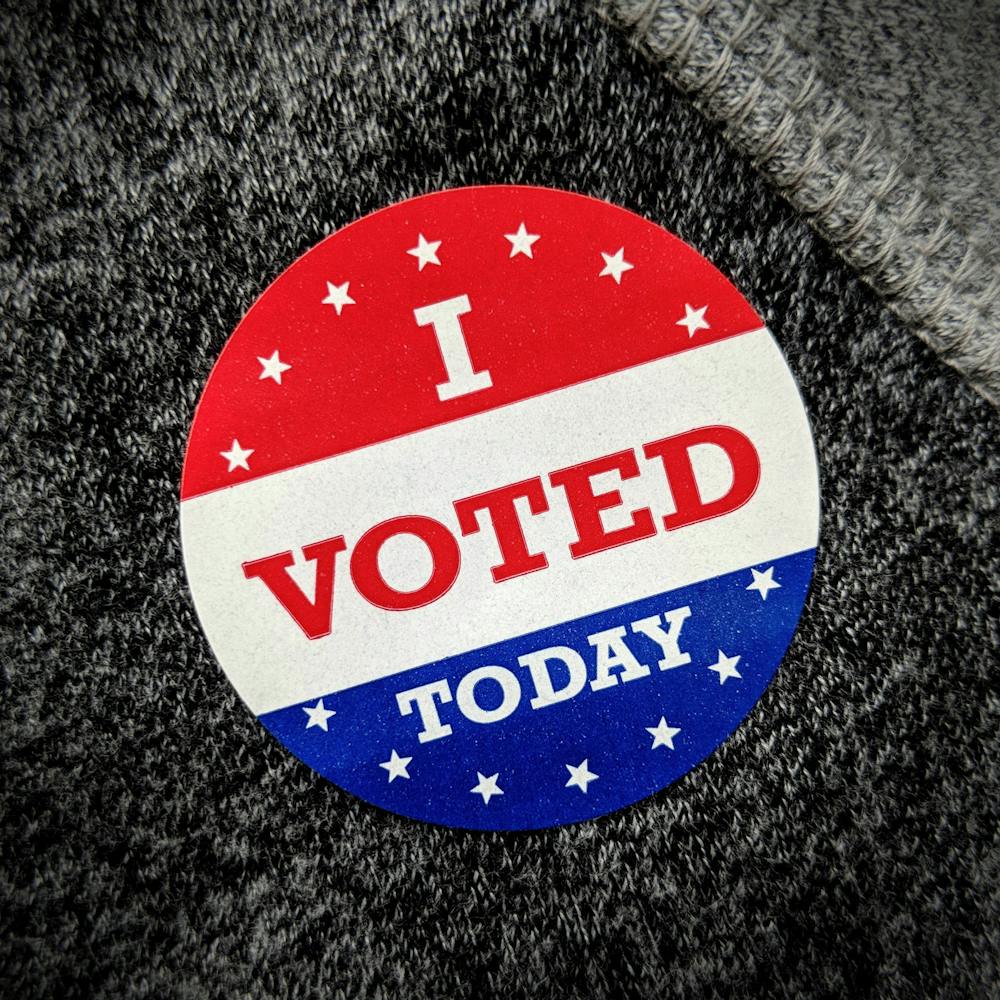By Briana Keenan
Correspondent
A week before the fall semester started, I requested my first-ever mail-in-ballot to vote in my first presidential election.
I voted in the primaries this summer, which was my first time voting in-person at my town’s senior center. I got an “I voted” sticker and proudly wore it for the remainder of the day.
This time, as I requested my mail-in-ballot, I knew that expressing my civic duty and exercising my rights as a citizen would be even more crucial. After President Joe Biden stepped down and Vice President Kamala Harris announced her campaign against Donald Trump, I knew that it would be another intense election.
When I went home for fall break, I mailed in my ballot. Although this was not the same experience as voting in-person, I was still excited to be able to vote in my first presidential election. My friends and I shared the same excitement as they mailed in theirs, participated in early voting or went to the polls on Election Day.
However, this excitement turned into stress the closer it got to the results being announced.
Fast forward to election night, I was carrying a tap dance mat back to the student center when one of my fellow dance friends checked their phone and said, “Trump broke 200.”
My heart sank, and I knew that the next few hours were decisive, and would be extremely stressful. To this day, I wonder how the people in charge of counting votes feel, because if we are stressed as spectators, I cannot imagine the type of pressure that they’re under.
Once I got back to my dorm, I couldn’t turn away from the coverage. My friends and I were texting each other the entire night as we watched the news. Eventually, I told myself that I had to shower and go to sleep.
The next morning, I woke up to the expected news that Trump had won the election with over 270 votes in the Electoral College. No matter what side people were on in this debate, I knew that it was going to be an interesting day.
As soon as I left to go to my first meeting of the day, I immediately felt an “off” vibe around campus, with a more tense air than typical slow mornings at 9 a.m. When I went to the student center later, the usual lunch rush crowd was there, but the mood was different. You could feel the range of emotions being processed, from upset to anxious to content, and many others.
I think we all knew that we were thinking about the same thing. Some people may have had classes, meetings and/or important deadlines, but we all were too preoccupied with the events of the night before.
In addition to the physical vibe that I felt here on campus, social media largely contributed to the stress, anxiety and emotions that many Americans were feeling after the election. When I wasn’t doing work, I tapped through repost after repost of election content. Some I gave a heart, and others I scrolled past.
Without a doubt, social media has largely changed society’s perspectives, emotions and behaviors. I can vividly remember the similar role it played in the 2020 election. However, experiencing it after voting in the election felt like a different experience.
Going on Instagram after being preoccupied with work for hours prior was a bit of a shock. I kept seeing post after post and would catch myself stuck in rabbit holes of content. I had to remind myself to stay on task and finish what I needed to get done for the day.
Some of these posts expressed accurate information, while others spread misinformation. I’ve learned a lot about this within my journalism classes over the years, and that’s why I follow multiple news sources so I can gather different perspectives and stay well-informed.
Even though posts on social media have subsided a bit since the day after the election, I still see several related posts, memes and trends on my timelines. On Thursday morning, my mom texted me about a trend that didn’t even come across my socials, and I continued to see varied perspectives and posts from across the country and even internationally.
Examples like these are why it is important to consider mental health when it comes to the election. Not only does social media have a role before and during it, but the role it plays afterwards is even more detrimental.
The future is uncertain. Every American feels differently about the way this election turned out, but social media’s contributions and experiencing it for the first time as a voter truly emphasizes how someone feels.







